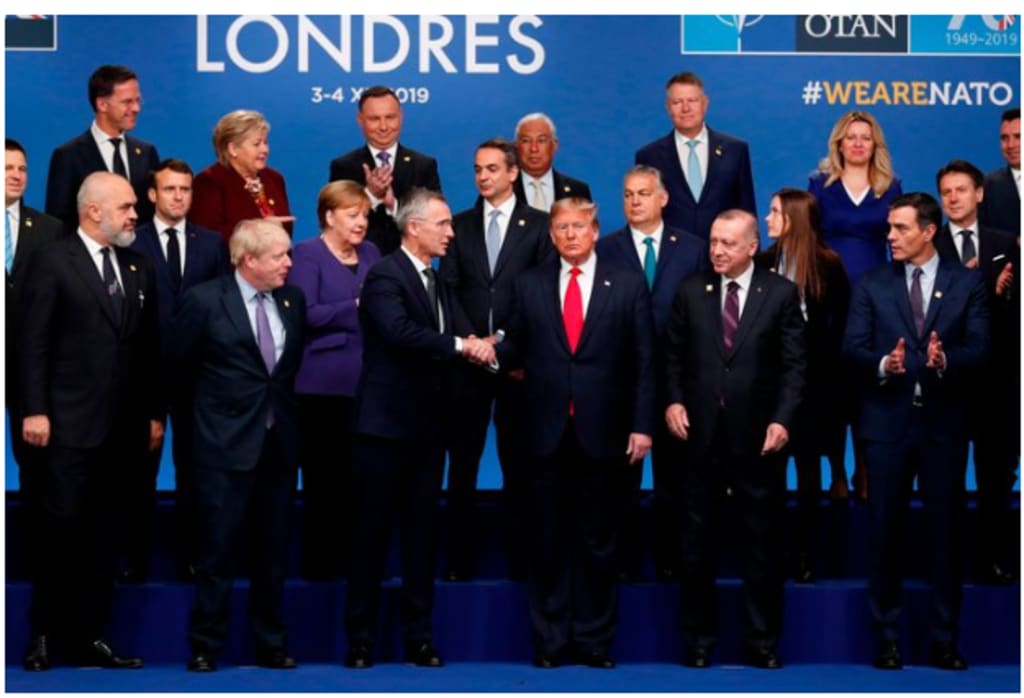
Is France the Worst NATO Member?
In recent remarks made by French President Emmanuel Macron, the question arises: Could France become NATO's most problematic member, potentially surpassing Turkey? Turkey, under President Erdogan's leadership since 2014, has gained a reputation as the least cooperative NATO ally. Erdogan's crackdown on free press and opposition groups, including the closure of media outlets and imprisonment of journalists, raises concerns about Turkey's commitment to NATO's values and principles.
Turkey's decision to purchase S-400 air defense units from Russia, despite US objections, led to its removal from the F-35 program in 2019. This move raised security concerns, as Russia could potentially gain intelligence on operational F-35s in the Turkish air force. Furthermore, Turkey's wavering stance during the Ukraine-Russia conflict and its disputes with fellow NATO member Greece over disputed islands have called into question its commitment to NATO's collective defense principle, known as Article 5.
However, Macron's recent statements suggest that France may be heading towards becoming NATO's most self-sabotaging member. During his trip to China in April, Macron seemed to advocate for Europe's strategic autonomy, stating that Europe should not get involved in crises that are not directly related to its interests. He even suggested seeking a "third path" with China, rather than blindly following the US in potential conflicts, such as a conflict over Taiwan.
Macron's remarks were met with praise from Chinese officials, which raises concerns about the extent of France's alignment with China's objectives. While seeking autonomy and reducing dependency on the US may have merits, Macron's stance undermines the efforts to maintain a liberal world order established after World War II. It risks destabilizing the global balance of power and empowering authoritarian states like China, who seek to challenge the current order and spread their influence worldwide.
Moreover, Macron's perspective fails to acknowledge the global implications of China's expansionist ambitions. China's drive to invade Taiwan poses a significant economic threat, given Taiwan's dominance in semiconductor manufacturing. The disruption of global supply chains and the potential loss of critical microchip production would have severe consequences for the world economy and defense capabilities. Macron's emphasis on Europe's autonomy and detachment from the US disregards the shared interests in countering China's ambitions and protecting the liberal world order.
While advocating for European autonomy in defense and reducing reliance on the US has merits, Macron's approach risks undermining the unity and collective security of NATO. It raises concerns about France's commitment to upholding the principles and values of the alliance, as well as its alignment with China's authoritarian agenda. Macron's focus on short-term economic gains for France disregards the broader security implications and risks undermining both European and global security.
In light of the backlash from European lawmakers and the criticism of Macron's statements on China, it is essential for France to reconsider its approach. France must reassess its stance and actively contribute to preserving the liberal world order, protecting democratic values, and countering authoritarian threats. By doing so, France can avoid becoming NATO's worst member and instead play a constructive role in maintaining global stability and security.
In conclusion, the debate surrounding France's role in NATO and its alignment with authoritarian regimes, particularly China, has raised concerns about the unity and effectiveness of the alliance. While Turkey has long been viewed as a problematic member, French President Emmanuel Macron's statements and actions have added a new dimension to the discussion. Macron's emphasis on European strategic autonomy and his willingness to engage with China have led to criticisms of undermining Western-led values and potentially compromising global security. The increasing economic ties between Europe and China, coupled with China's ambitions in Taiwan, further complicate the situation. The ongoing debate highlights the complexities and challenges facing NATO and underscores the importance of maintaining unity and cohesion among member states to address global security threats effectively.





Comments
There are no comments for this story
Be the first to respond and start the conversation.